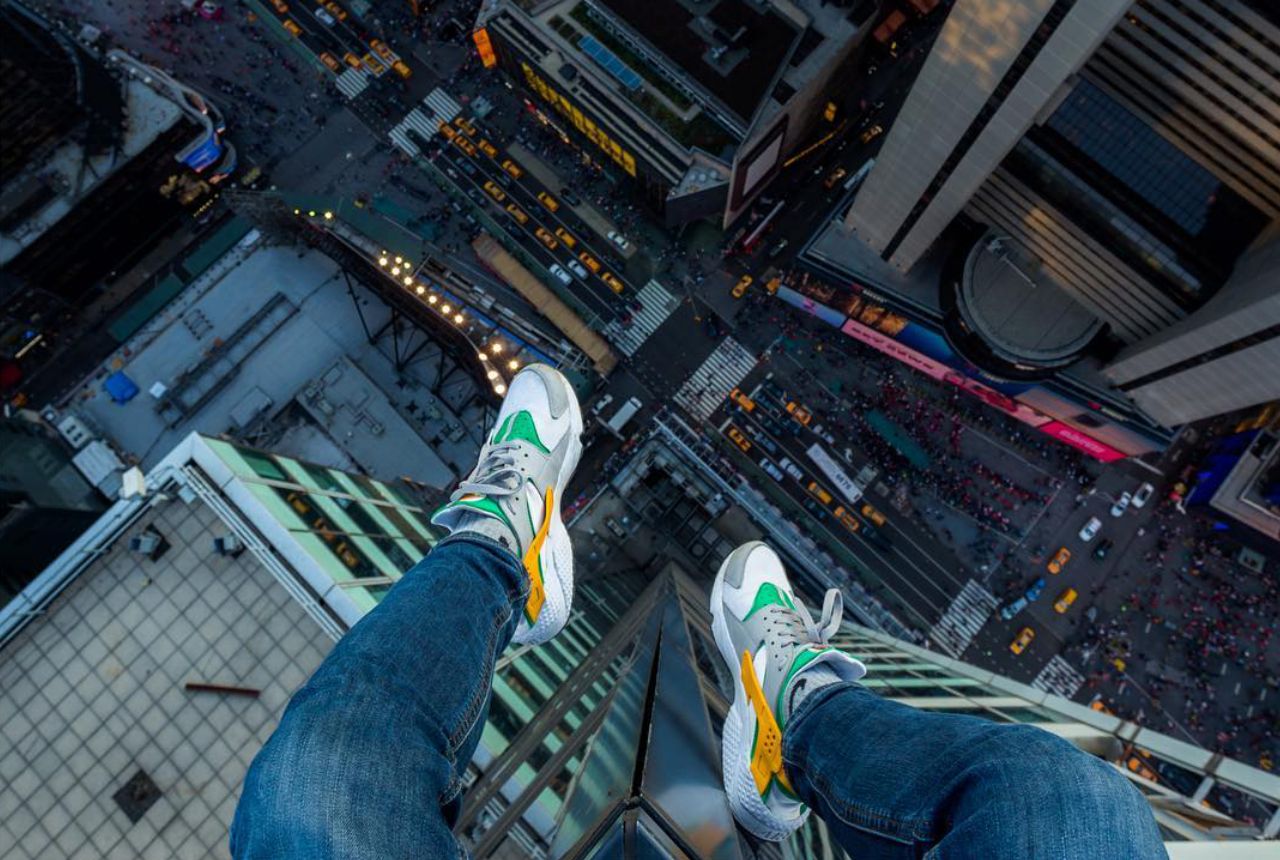Fear of heights has been a biological acclaimed disorder in people and is also amongst them. And the fear of heights also has a name to it which is called acrophobia. This mental health illness known as acrophobia causes an extreme fear of heights in the sufferer. This kind of anxiety condition exists.
When confronted with tall heights or placed at a significant height, a person who has acrophobia feels extreme fear and anxiety. Height-related situations or locations are frequently avoided by them.

Everyone has some level of apprehension surrounding heights, and most individuals are more careful than usual when they are at a significant height. Most of us might experience some trepidation or trembling if we stare down from a height, like a bridge. However, many who have acrophobia suffer extreme and unjustified fear when they are around heights, even during routine activities like parking a car in a multi-story parking garage, standing next to a balcony, or descending a flight of stairs.
Symptoms:
Acrophobia, to use the medical name, can have very similar symptoms in common with other anxiety disorders. These include signs from your body including trembling, sweating, an accelerated heartbeat, trouble breathing, nausea, and a parched mouth.
Acrophobic people frequently experience severe fear and distress around heights and avoid them as a result. Other symptoms like Vertigo, the urge to crouch down or hold onto something, and other symptoms specific to acrophobia are also present.
According to evolutionary theories, we all have this phobia from birth because staying away from heights keeps us safe. Only when this anxiety about heights that could be harmful spreads to other, less threatening circumstances and starts to interfere with daily living it then becomes a problem.
What to do to cope?
Recognize and comprehend anxiety’s symptoms. Humans naturally experience anxiety as a response to threat. Our sympathetic nervous system activates and begins preparing our body for action when we sense a threat. The fight-or-flight reaction, which is what it is known as, serves to defend us.
Our body is attempting to pump more blood toward our muscles in order to get us ready to fight or flee, which causes many of the unpleasant feelings of worry. To get more oxygen to our muscles, for instance, our heart beats quicker, we breathe more quickly, and we experience a dry mouth and “butterflies” in our stomach as energy and blood are diverted away from these areas and towards our muscles.
Many anxiety disorders, including phobias, include problems with unawareness and incorrect interpretation of these physiological sensations.
In acrophobia, for instance, a person who experiences nausea and dizziness while high up may think that these symptoms signal an impending catastrophic fall. Because the dread of falling will probably make the physical sensations considerably worse, this might heighten anxiety.
Try to become familiar with the bodily signs of anxiety to assist you prevent misinterpretation and to help you cope with the anxiety. This will assist you in realising that your symptoms are nothing more than your body’s normal fight-or-flight reaction. The anxiety response doesn’t endure forever, even though we can’t just choose to turn this mechanism off. Never forget: feelings of anxiety always pass.

Treatment:
Start by looking at pictures of heights or picturing heights in your head for the simplest steps. The key is to start small with anxiety-inducing situations that are doable. The next step could be to add being close to heights (like an escalator in a mall), then utilising an escalator, and finally going to a big structure.
If you’re in a high place there are some things you can do to try to decrease your anxiety. If you can safely do any of the following actions while in a high place, try:
- Fixing your view/sight on the horizon.
- Looking at stationary objects near you.
- Sitting or laying down will make you feel better.
- Pausing or stopping movement.
- Doing cognitive distractions, such as naming items from a certain category.
- It can be uncomfortable, but it’s important to talk to your healthcare provider if you’re experiencing the signs and symptoms of acrophobia. Therapy can help you overcome your phobia.
- If you’ve already been diagnosed with acrophobia, there are some things you can do to manage your symptoms, including:
- Getting enough sleep and exercise.
If you are participating in psychological therapy to treat your acrophobia, be sure to see your therapist regularly, do not skip sessions as it may even delay recovery.
- Try to practise mindfulness activities such as mediation.
- And Practicing relaxation techniques such as deep breathing and yoga.
- Reaching out to family and friends for support, letting it out as how you feel will help you speed up the process.
- Joining a support group for people who have acrophobia or specific phobias in general.

